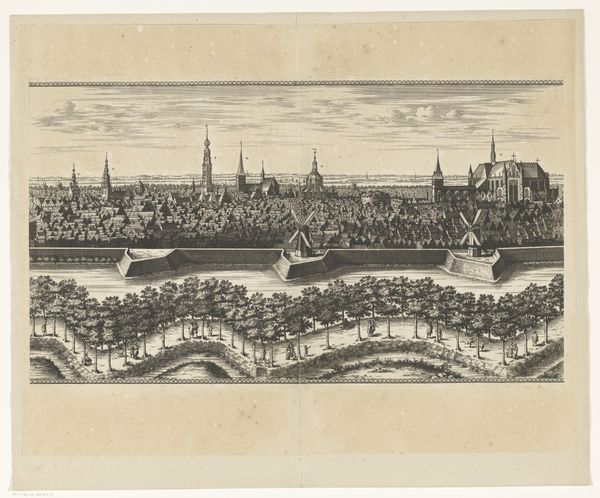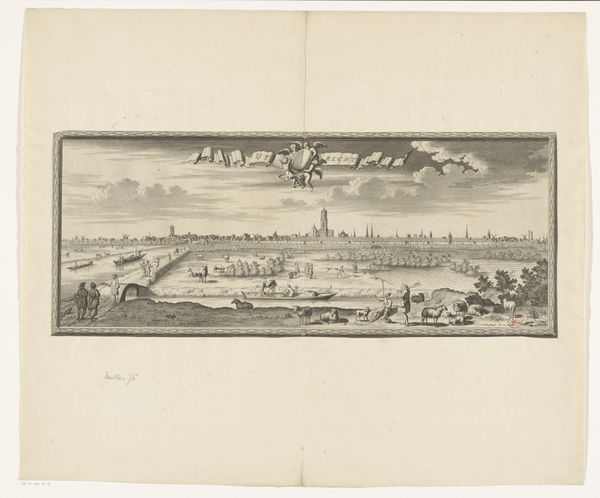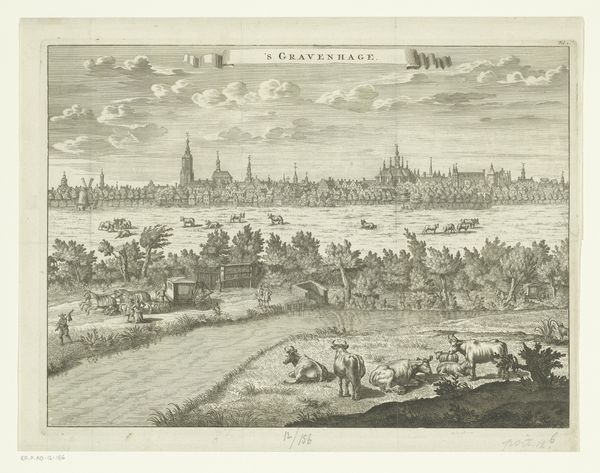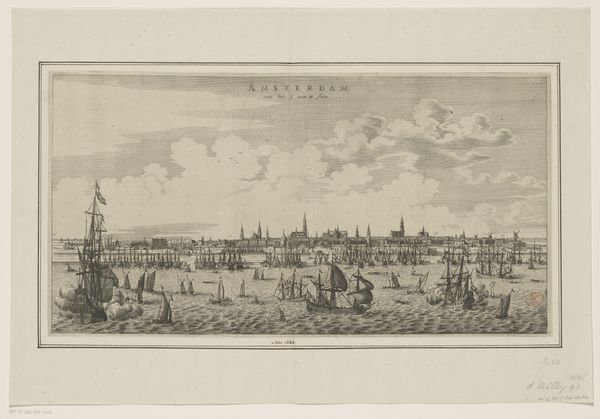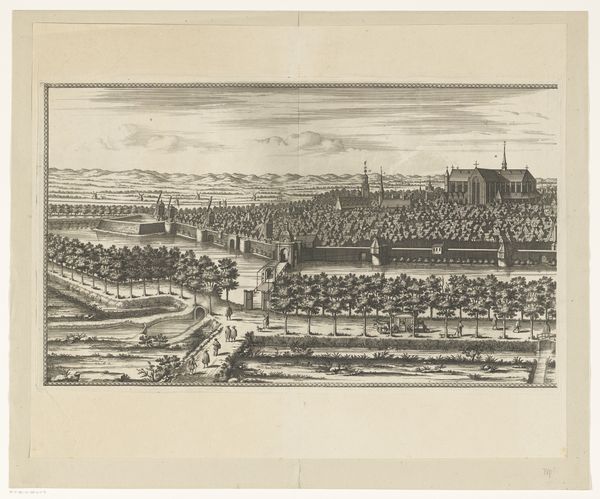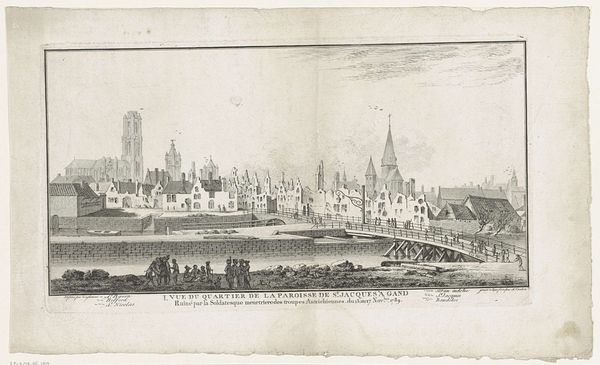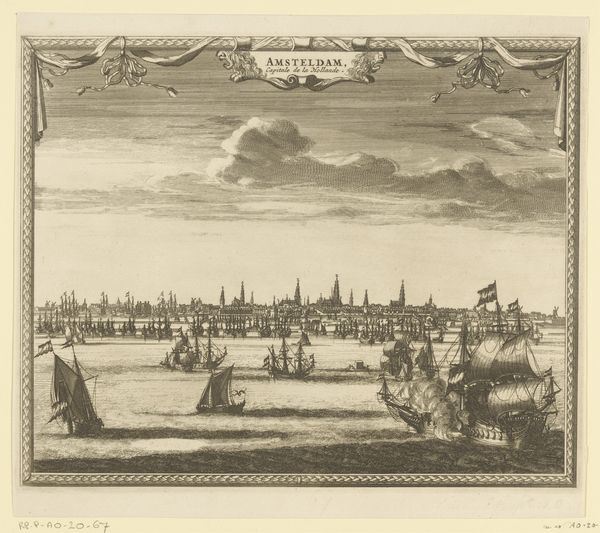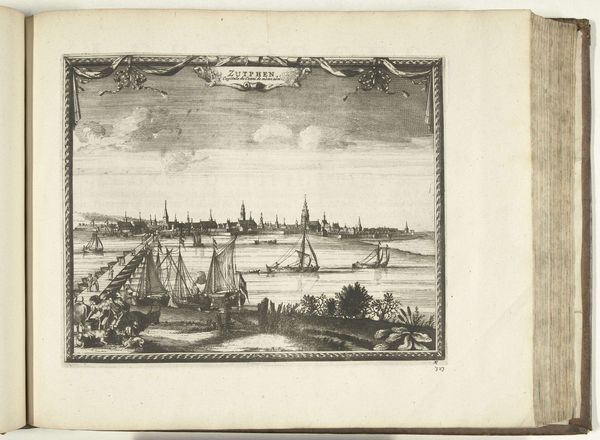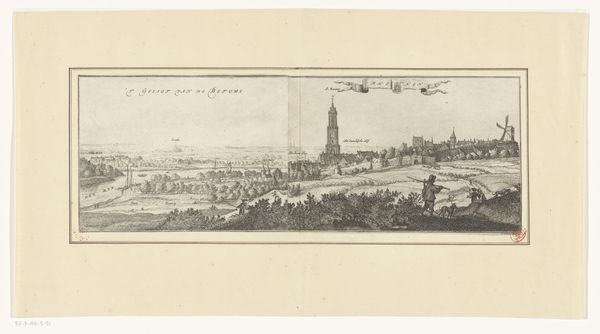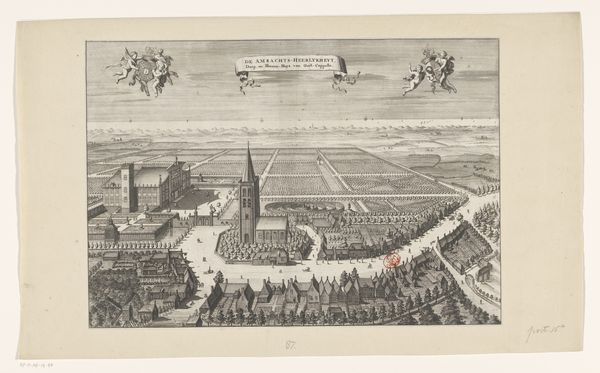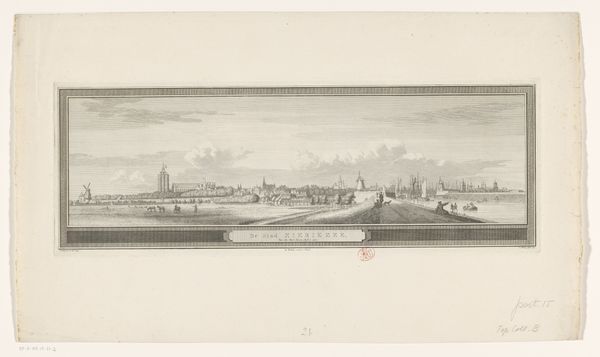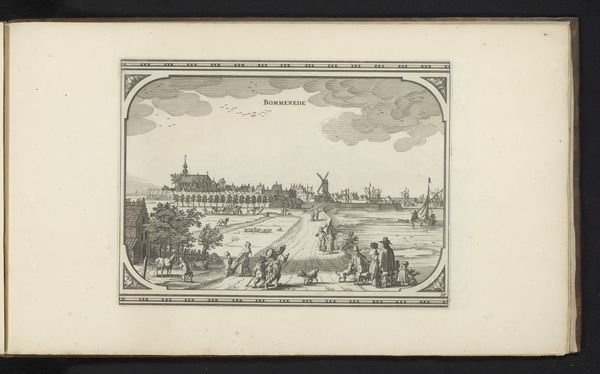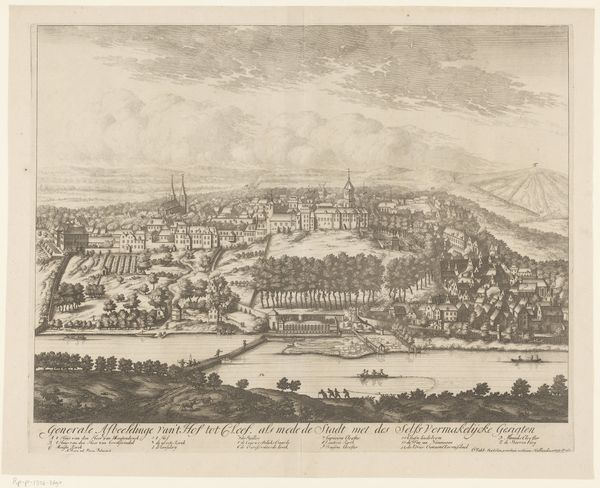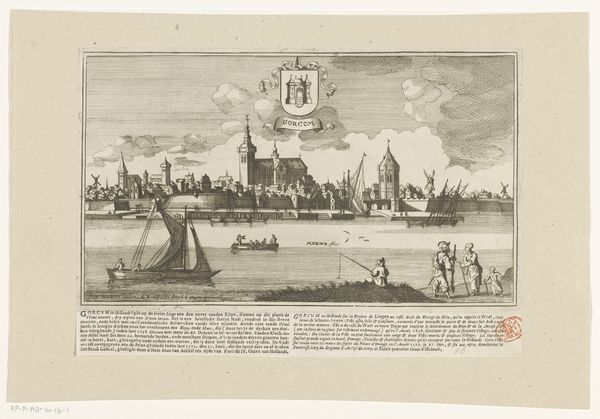
print, engraving
#
baroque
#
dutch-golden-age
# print
#
old engraving style
#
landscape
#
geometric
#
cityscape
#
engraving
Dimensions: height 272 mm, width 344 mm
Copyright: Rijks Museum: Open Domain
Curator: Here we have an engraving titled "Gezicht op Haamstede," or "View of Haamstede," a cityscape from the Dutch Golden Age currently held in the Rijksmuseum collection. The artist is anonymous, dating from somewhere between 1696 and 1728. Editor: It’s stark, almost dreamlike. That high vantage point combined with the linear detail – everything feels very exposed. I’m struck by the flatness; the detail of daily life in the foreground contrasted by these architectural forms. Curator: It certainly offers a comprehensive visual record. You see Haamstede spread out before you, punctuated by its towering church and a distant windmill. Three smaller scenes are arranged across the top, like a triptych. In the center of those, the coat of arms is supported by angelic figures. Editor: Let’s consider that coat of arms, a stamp almost, reproduced to reinforce municipal power, while this pastoral scene suggests how human activity reshaped the terrain. We're given the product – a view – but what labor was needed? And to what extent could people actually see themselves within this? Curator: Good question. To me, there's a detachment. I wonder about the intended viewer? It evokes the sense of someone cataloging their world, seeking to know, almost to *possess*, the landscape and its attributes. Perhaps its for a patron eager to flaunt their domain? Editor: Precisely! I’m intrigued by the consumption of such an image, its reproduction enabling a wider claim to prestige, but with each print the power may subtly erode, because the more accessible something becomes, the less unique its perceived value. Curator: That's so astute! Its availability is part of its charm; it becomes about communal identity and belonging. This meticulous scene becomes an imagined landscape, as much as it is a historical document. Editor: Agreed. For all the artist's apparent objectivity, this cityscape offers so much more. This single print embodies status, community and, ultimately, perhaps a quiet melancholy over the transient nature of power.
Comments
No comments
Be the first to comment and join the conversation on the ultimate creative platform.
